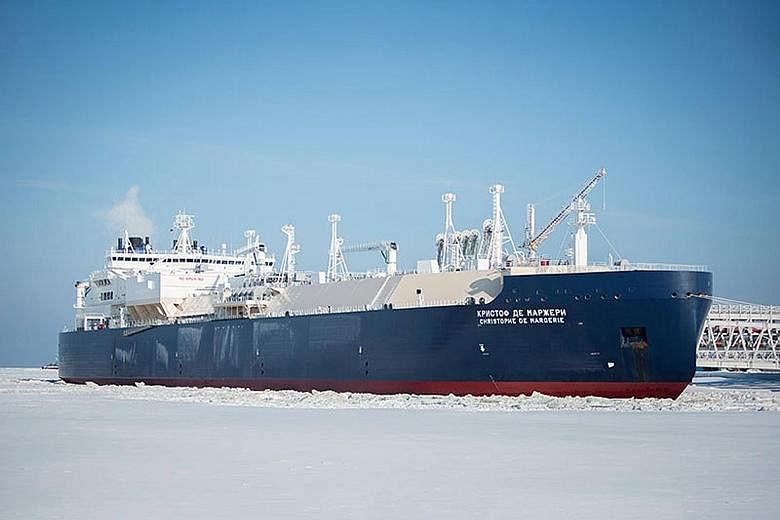NEW YORK • A Russian-owned tanker, built to traverse the frozen waters of the Arctic, completed a journey from Europe to Asia in record time this month, auguring well for the future of shipping as global warming melts sea ice.
The Christophe de Margerie, a 300m tanker built specifically for the journey, became the first ship to complete the Northern Sea Route without the aid of specialised ice-breaking vessels, said the ship's owner, Sovcomflot, in a statement.
The journey was the culmination of a centuries-old navigational dream and a decade-long plan by Russian President Vladimir Putin, whose government had indicated it planned to take political and economic advantage of changes to the Arctic's climate.
"This is a big event in the opening up of the Arctic," Mr Putin said of the tanker's maiden voyage.
The ship, transporting liquefied natural gas, completed the trip from Norway to South Korea on Aug 17 in 19 days, 30 per cent less time than the regular route through the Suez Canal requires, the company said.
Sailors have for centuries sought a navigable Northwest Passage: a shorter, faster route between the Atlantic and Pacific oceans that crosses the Arctic.
Historically, thick ice made the journey impossible. In the last century, specialised ice-breaking vessels made the trip plausible, but prohibitively expensive, and then only during the summer, when the ice was thinnest. But changes to the climate have altered the region's ice, and Sovcomflot said it believed the ship could make the journey "year- round in difficult ice conditions".
The first of a planned fleet of 15 similar tankers, the Christophe de Margerie has a reinforced steel hull that allows it to break ice up to 1.2m thick. But the route remains expensive. A report last year by the Copenhagen Business School concluded that trans-Arctic shipping would not become economically viable before 2040. NYTIMES


